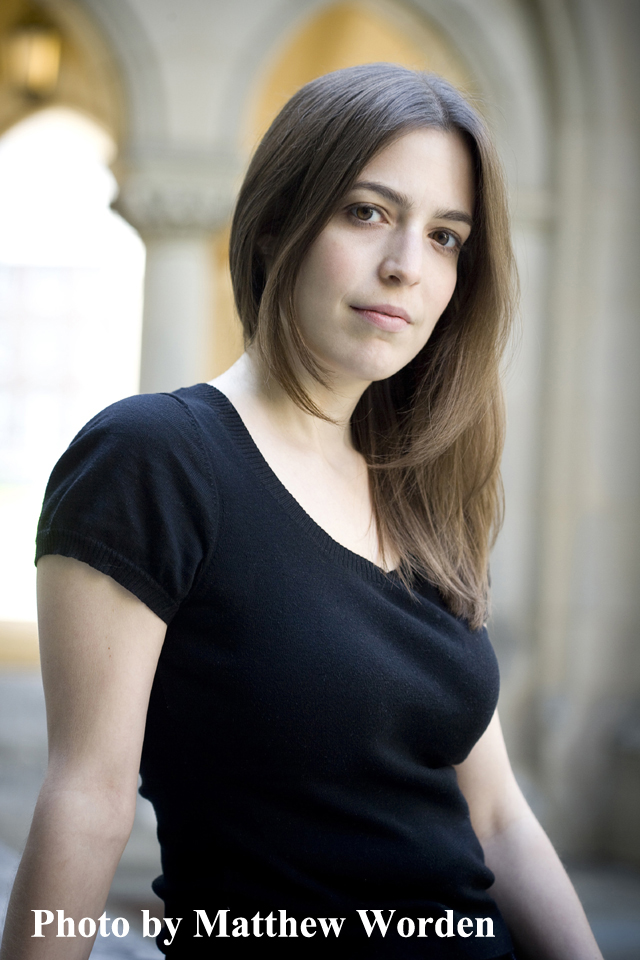One Art
BY PROF. VAROL AKMAN
Sandra Beasley (b. 1980)
It's not uncommon for a lover to ask, "why aren't I in your poems?" Usually the poet thinks, "You don't want that. Showing up in poems is a bad sign."
It is doubtful that when Sandra Beasley was a child, she spoke as a child, understood as a child and thought as a child. A precocious kid selected by her teacher to attend additional classes with Rose MacMurray, "The Poetry Lady" of the Fairfax County school system, Beasley decided to be a poet when she grew up. Her third-grade report card was oracular in that sense: "Sandra's poems will find a wider audience."
Beasley was born on May 5, 1980, in Vienna, Virginia. She is the daughter of a painter and an Army general. She graduated from the University of Virginia, Charlottesville, in 2002 with a degree in English language and literature. She then received an MFA (2004) in creative writing from the American University in Washington, DC.
Beasley is the author of three books, including the 2011 memoir "Don't Kill the Birthday Girl: Tales from an Allergic Life." (Her long list of allergies includes dairy, egg, cashew, mango, shrimp, beef, cucumber and soy.) Her first book of verse, "Theories of Falling," won the 2007 New Issues Poetry Prize. Her second collection, "I Was the Jukebox," was winner of the 2009 Barnard Women Poets Prize. She is at work on a new poetry collection titled "Count the Waves."
Beasley's work has also appeared in such magazines as Poetry, as well as in "The Best American Poetry 2010."
Beasley is recipient of a 2010 DC Commission on the Arts and Humanities Artist Fellowship, the Friends of Literature Prize from the Poetry Foundation and the Maureen Egen Exchange Award from Poets & Writers. She lives in Washington, DC, freelancing for The Washington Post Magazine and directing workshops at the Writer's Center.
This week's piece brings forth philosophical thoughts. In the jargon of linguistics, "you" is an indexical. The reference of an indexical shifts from speaker to speaker, time to time, place to place. Thus, an utterance of "you" selects the person to whom it is addressed. Who is the addressee of Beasley's "You"? We do not know. But thanks to the indexical, one may always use it to speak to another you that one knows. By the way, Weegee is the alias of Arthur Fellig (1899-1968), a New York City photographer renowned for his black and white photography. You can hear this poem in Beasley's voice at www.blackbird.vcu.edu /v5n1/poetry/beasley_s/you.ram
> A poem's dominant strength should be verbal (in other words, a visual artwork is not a "poem" just because it incorporates text). A poem should be an act of exploration, something that asserts a new truth about the world. I am not interested in passive observation, no matter how artfully constructed. A poem is a tough shard of a thing.
> Readings are a critical part of my investment in poetry. When I was young and envisioned being a writer, it was all about the solitude of a room of my own. But the reality often has me on the road, and I welcome those opportunities to connect with crowds and bring the work alive. Sometimes, in order to make something clearer off the page, I'll have to edit on the fly. That can be tricky -- re-establishing pronouns for clarity, using body language to signal a shift in speakers -- and I fear the craft of my line breaks sometimes gets lost in the process.
> I wasn't raised in a religious household, though there was a general belief in God and spiritual afterlife. I can't deny the palpable holiness of some spaces; I used to sneak into the University of Virginia chapel to read Gerard Manley Hopkins' poems before an audience of empty pews. I locate my hope in building a community that sustains a common good, both social and aesthetic.
> I believe in beauty, which sounds venal. But to believe in beauty is to believe in balance, which is to believe in justice, which is to believe in rational process. Scientific studies claim symmetry -- eye level, mouth shape -- is the principal way we judge beauty. But symmetry is to balance what "an eye for an eye" is to justice: a gross simplification. Beauty requires complexity.
NOTES
The opening quote is from W. W. Norton's "Poems Out Loud" blog (2010). First published in 2006 by the online journal Blackbird, "You" appears in "Theories of Falling." I am indebted to Kimberly Kolbe, managing editor at New Issues Poetry & Prose (the publisher of the book), for permission to reprint. The excerpts appear courtesy of the poet. The first is from a 2011 interview for the "Almost Dorothy" blog. The second is from a 2010 interview with Shana Thornton-Morris for the "Her Circle" e-zine. The last two are from a 2008 interview with Leah Fabel for The Washington Examiner.
You
You are the whole building on fire.
You are the voice of sirens. You are
the dumb crowd milling, the capture
of Weegee's lens. You are flames
licking up the escape. You're the hovering
of a mother at the cliff of her window ledge.
You are the choice to drop her baby.
You're the chance of a beckoning crowd,
six hands gripping a sooty raincoat. You
are the only option. You're a simple drop.
Ten stories below they pray you're like a cloud,
soft floating. You are like a cloud. Grey
and you don't hold anything. You are
that moment before a falling, the falling,
a whir of falling, wail of falling, the sweet
thud. You are black blood flaring
across the concrete. You are a needle
to the groove of a very sad song.
The whole building burns with you.